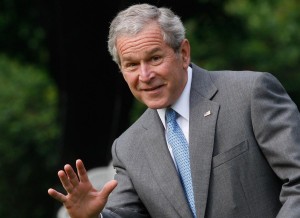UNITED NATIONS — There used to be an advertising slogan, “We’re number two but we try harder.” Perhaps in the spirit of the times we should now revive the phrase and proclaim, “We’re number twelve, but it’s somebody else’s fault.”
Thus when viewing the world’s freest economies, the U.S. has slid from number six to twelve in the Index of Economic Freedoms. And that’s since President Barack Obama assumed office in 2009. So who’s to blame? The rising BRICS’s, (Brazil, Russia, India, China, South Africa), George W. Bush, or the ever elusive economic recovery?
 The Index of Economic Freedoms jointly sponsored by Washington’s Heritage Foundation in partnership with the Wall Street Journal rates 178 countries worldwide. In fairness since the survey started twenty years, ago, many more economies have been getting freer as the shackles of state socialism have fallen away in Eastern Europe and even much of the Third World. So in one sense, other countries are doing better and good for them. But sadly we in the United States have not been doing nearly as well as we once did; shame on us.
The Index of Economic Freedoms jointly sponsored by Washington’s Heritage Foundation in partnership with the Wall Street Journal rates 178 countries worldwide. In fairness since the survey started twenty years, ago, many more economies have been getting freer as the shackles of state socialism have fallen away in Eastern Europe and even much of the Third World. So in one sense, other countries are doing better and good for them. But sadly we in the United States have not been doing nearly as well as we once did; shame on us.
The Index rates countries using a comprehensive formula of Rule of Law, Regulatory Efficiency, Limited Government, and Open Markets. The Index then focuses on issues of property rights, freedom from corruption, business freedom, labor freedom, financial freedom, regulation efficiency, limited government and open markets. Each country is ranked through this exhaustive but serious template.
So let’s look at the Top Ten to which the USA used to belong to. Hong Kong, Singapore and Australia are in the top three followed by Switzerland, New Zealand and Canada. No surprises here. Rounding off the top ten list we see Chile as number seven, then Mauritius, Ireland, and Denmark.
Estonia, a Baltic state, which was still part of the Soviet Union until 1991, is number eleven followed by the United States.
So what is pulling down America’s grades? The Heritage survey states that the slip is “primarily due to deteriorations in property rights, fiscal freedom, and business freedom.” Describing the overall decline in economic freedom, the report adds there have been “particularly large losses in property rights, freedom from corruption, and control of government spending.”
Sadly, the United States is the only country to have seen a loss of economic freedom for seven years in a row.
The report adds, “Substantial expansion in the size and scope of government, including through new and costly regulation in areas like finance and health care, has contributed significantly to the erosion of U.S. economic freedom”. Clearly, the American economy needs investment clarity and serious incentives so that the spirit of enterprise may thrive. Today, Big government is indeed part of the problem, not the solution.
Canada, scoring sixth internationally, is viewed as the freest economy in North America. The survey offers the accolade, “A transparent and stable business climate makes Canada one of the world’s most attractive investment destinations.”
Going back to the list, we see Taiwan standing at number 17, followed by Germany at 18, and South Korea at 31.
Yet some of the mega economies such as the BRIC’s mentioned at the onset don’t rate so well. Take Brazil at 114, Russia at 140, India 120, or China at 137. Here we see statistically high growth economies but places mired in corruption, cronyism and dismal levels of transparency.
Though South Africa’s economy rates at 75th and Moderately free,” the other four above BRIC’s rate as “mostly unfree.” Thus, despite high growth rates, China’s economy is viewed as hampered by “The Communist Party’s ultimate authority throughout the economic system undermines the rule of law, and institutionalized cronyism remains pervasive.”
Not so unpredictably at the bottom of the list the Most “repressed” economies we find Zimbabwe, Cuba and North Korea.
The good news remains that more countries are now prospering economically; the sad news is that the USA can and should be doing so much better.
John J. Metzler is a U.N. correspondent covering diplomatic and defense issues. He writes weekly for WorldTribune.com. He is the author of Transatlantic Divide ; USA/Euroland Rift (University Press, 2010).


You must be logged in to post a comment Login